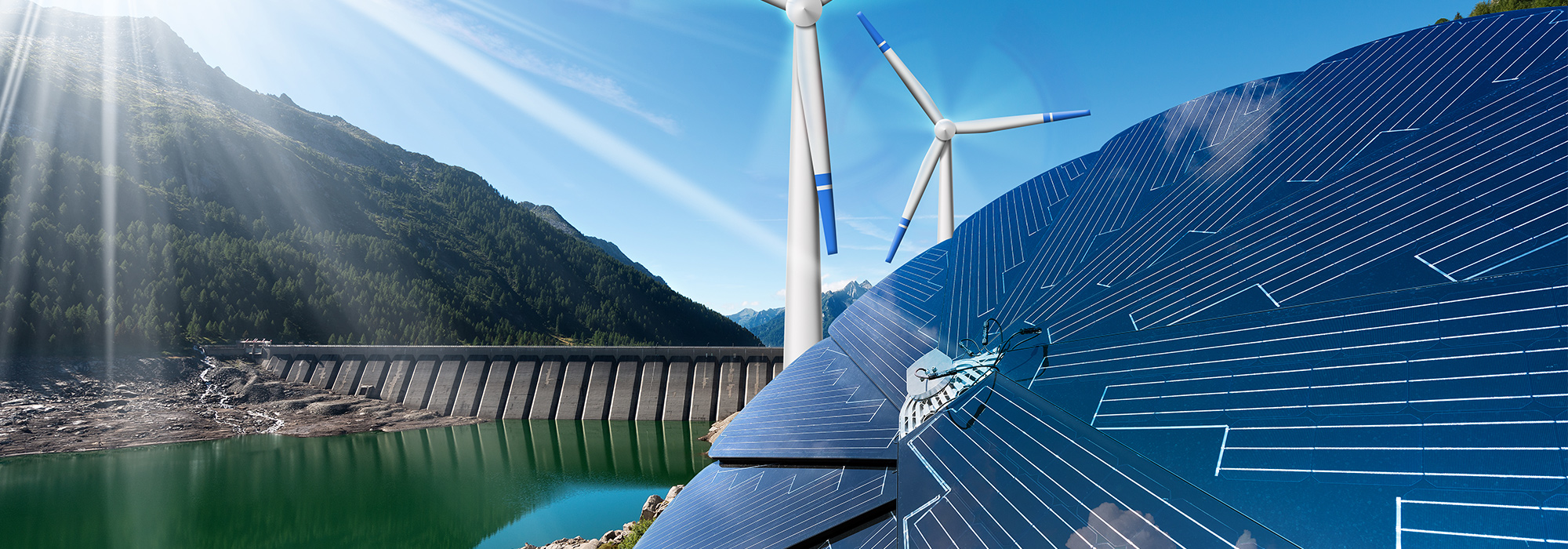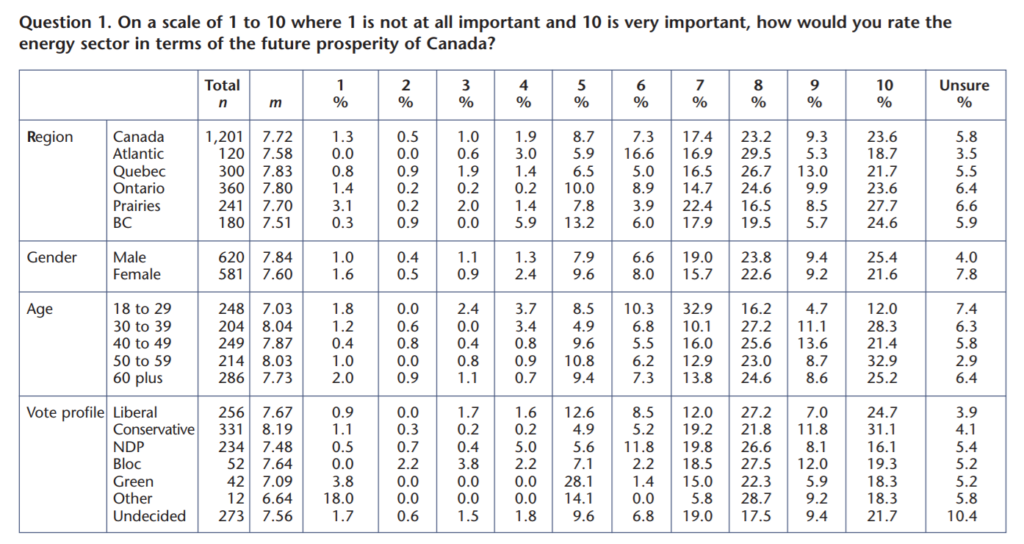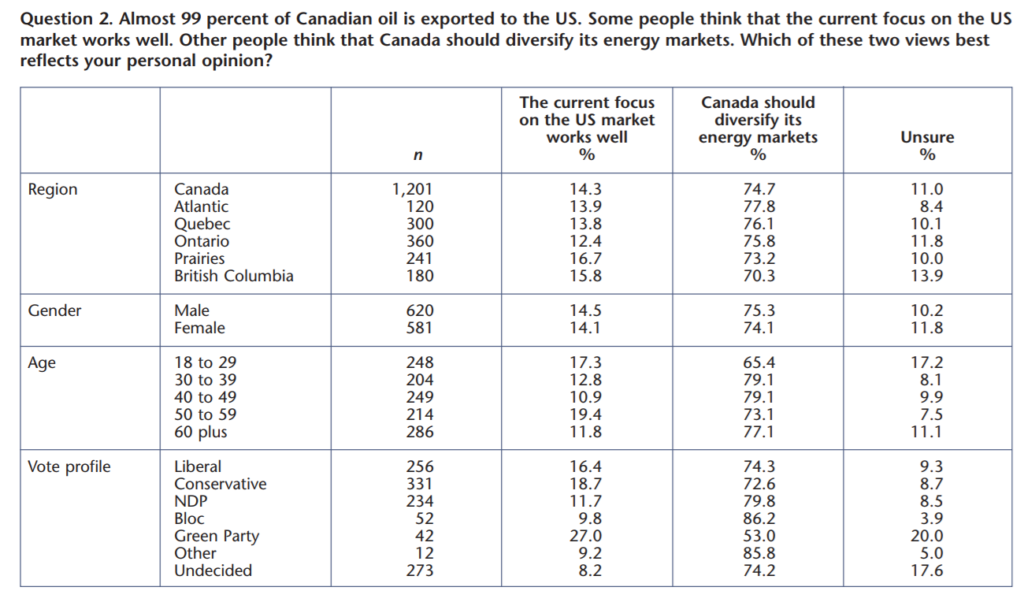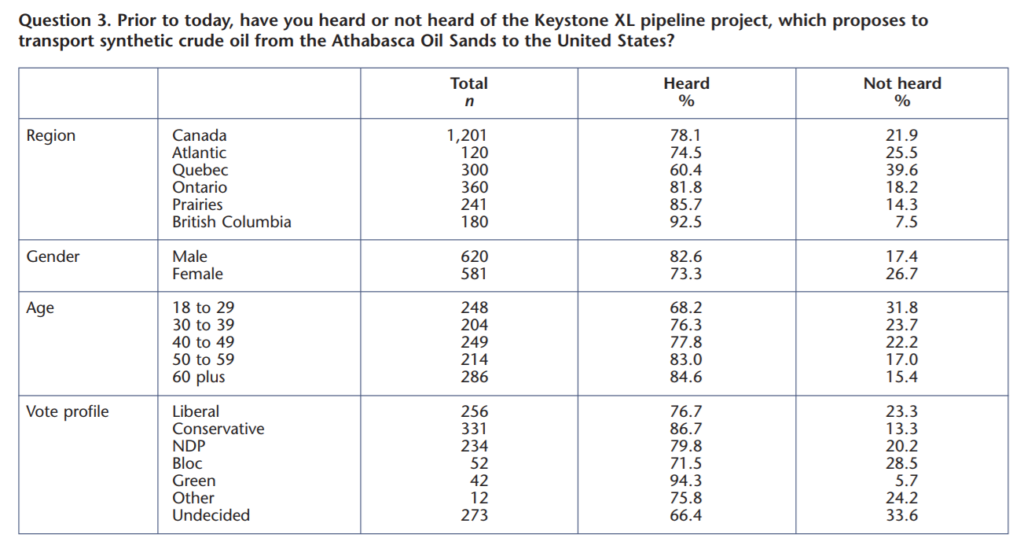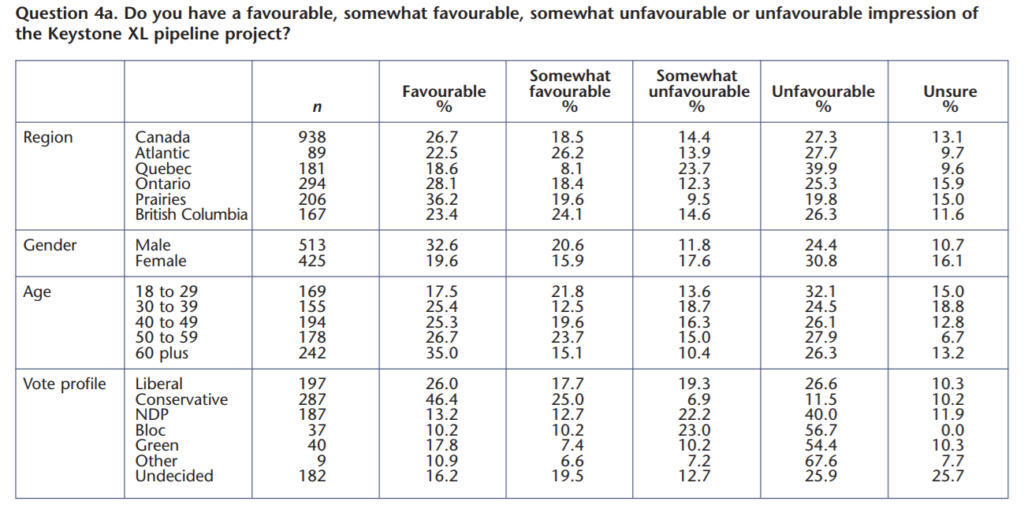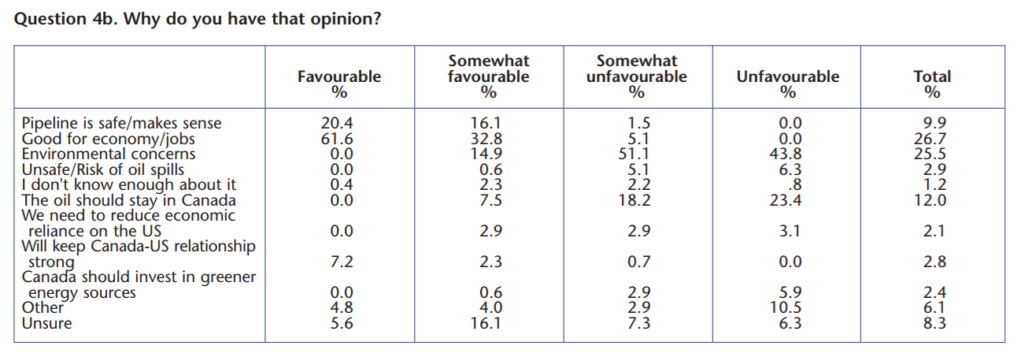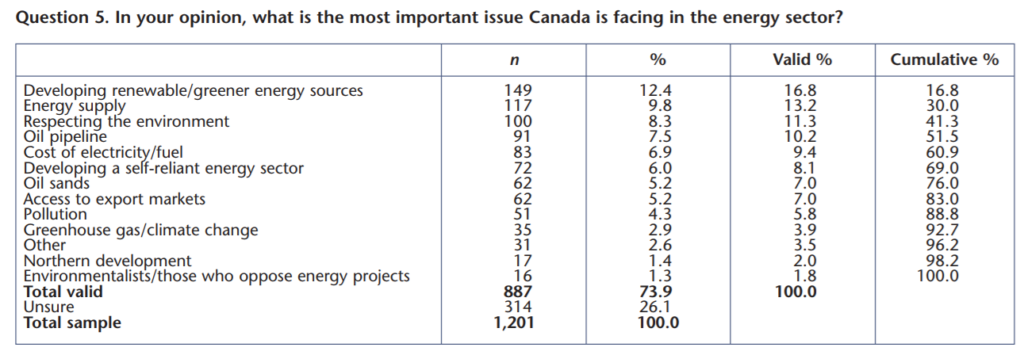
Canadians see the country’s energy resources as important to our future prosperity, and by a wide margin they also believe it’s important for Canada to diversify its markets beyond the United States, which now accounts for 99 percent of Canada’s exports in oil and natural gas.
These are the principal findings of an Online Extra survey conducted for Policy Options by Nanos Research. The poll, a national random telephone survey of 1,201 Canadians, was conducted between January 20 and 23, and has a margin of error of 2.8 percentage points, plus or minus, 19 times out of 20.
Fully 56.1 percent of Canadians ranked energy as rather to very important (between 8 and 10 on a scale of 10) to the country’s future prosperity (question 1). Only 2.8 percent thought energy not all or not very important (between 1 and 3 on a scale of 10). That’s not even a blip. And when we asked Canadians whether Canada should diversify its energy markets away from the United States, which now accounts for 99 percent of our oil and gas exports, 74.7 percent agreed that we should develop a diversified energy strategy (question 2).
In other words, three Canadians in four agree that Canada needs to develop the emerging markets of the Asia Pacific and other regions of the world. Only 14.3 percent, one in seven, thinks the current focus on the US works well.
This view is generally held in this proportion in all regions of the country. In the Atlantic, 77.8 percent of respondents think Canada needs a diversified energy strategy, 76.1 percent of Quebecers agree, and there is 75.8 percent support for such a strategy in Ontario, 73.2 percent on the Prairies and 70.3 percent in British Columbia.
What Canadians are saying here is that while our relationship with the US is very important, they see a diversified energy strategy as key to the long-term future prosperity of the country.
When we asked Canadians whether Canada should diversify its energy markets away from the United States, which now accounts for 99 percent of our oil and gas exports, 74.7 percent agreed that we should develop a diversified energy strategy.
And yet, Canadians are conflicted, or at least divided, on the issue of building a pipeline to transport oil from the Alberta oil sands to refineries on the Gulf Coast of the US.
Remarkably, 78 percent of Canadians, nearly four out of five had heard of TransCanada’s Keystone XL pipeline project, which was very much in the news when we were in the field (question 3). The Obama administration had announced earlier in January that Keystone would not be approved on its proposed route across aquifers and agricultural land in Nebraska. Name recognition of Keystone XL was highest in British Coolumbia, at 92.5 percent, and lowest in Quebec, at 60.4 percent.
Over the past several months, Keystone has become the rallying cry for environmentalists in the US and Canada who oppose the Alberta oil sands. They also oppose Enbridge’s proposed Northern Gateway pipeline project from Edmonton to Kitimat on the West Coast. Northern Gateway is now under regulatory review.
Public opinion in Canada is about evenly divided on whether Keystone XL should go ahead.
While 26.7 percent of Canadians had a favourable impression of the project, and 18.5 percent a somewhat favourable impression, for total of 45.2 percent, another 27.3 percent had an unfavourable impression, and 14.4 percent a somewhat unfavourable impression, for a total of 41.7 percent opposed to the project (question 4a).
In fact, there are some very clear regional clusters of opinion. Quebecers consistently rate the environment as an important issue. On Keystone they represent the strongest pocket of opposition — 63.6 percent held a negative view of Keystone XL. On the other hand, 55.8 percent of Prairie residents had a favourable (36.2 percent) or somewhat favourable (19.6 percent) impression of Keystone XL, while in Quebec only 26.7 percent had a favourable (18.6 percent) or somewhat favourable (8.1 percent) impression of the project.
There are key themes that stand out when explaining the reasoning behind Canadians’ support or opposition to Keystone XL (question 4b). Those who had a favourable opinion were most likely to say that the project was good for the economy and would create jobs. Many also expressed confidence that pipeline technology is safe, and that the project in general made sense.
On the other hand, environmental concerns were most likely to be cited by those who said they were unfavourable to the project. Economic considerations were also in evidence among those opposed to the pipeline: a number of those unfavourable to the project were opposed to the export aspect, saying that the oil should remain in Canada instead. Many who voiced this opinion thought that Canada risked losing out on refinery jobs and the possibility of cheaper oil by exporting its raw resources to the United States.
When we asked an open-ended question about the most important issue facing Canada in the energy sector, the responses varied widely (question 5). For example, 12.4 percent of Canadians said developing renewable/ greener energy sources was the top priority, another 9.8 percent thought energy supply was the most important, and another 8.3 percent thought respecting the environment was most important. The three top choices on this question speak directly to the thematic of this month’s Policy Options: sustainable energy.
Photo: Shutterstock



